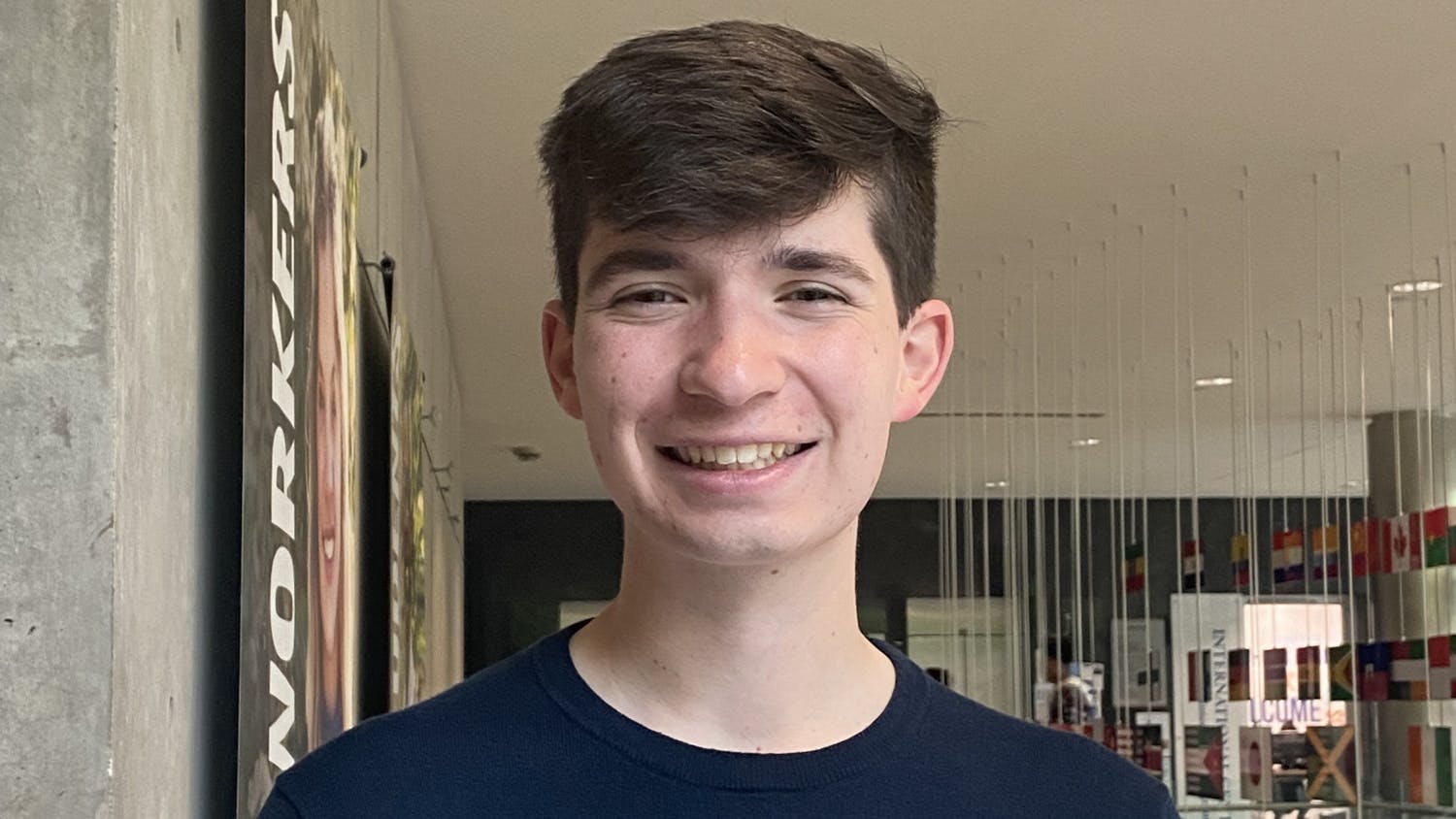In a day of discussing issues that impacted women and gender throughout history, Seton Hall held its annual Conference on Women and Gender on March 16.
[caption id="attachment_22389" align="alignnone" width="838"] Kiera Alexander/Asst. Photography Editor[/caption]
Various sessions that focused on gender related topics were held, such as gender equality, the #MeToo movement, masculinity and religion.
This year’s keynote speaker was Dr. Camille Nelson, a dean and law professor at American University’s Washington College of Law. Her speech, “Exploring the Underexplored: Policing at the Nexus of Race, Gender, and Mental Health,” focused on the controversial issues of police brutality and discrimination towards marginalized groups based on race, gender and mental health.
Nelson displayed examples of different incidents, like videos that show police brutality toward minorities, specifically African-Americans.
However, Nelson said that though there seems to be an increase in these police brutality cases, people should keep in mind that the police often fear for their own lives. This said this may contribute to why police resort to brutality.
“My concern is that the ways in which suspect identification construction feeds into that enhanced fear,” Nelson said, “often when talking to a person who has been racialized, should be acknowledged.”
Nelson also mentioned that the police have sometimes mishandled dealing with mentally ill people, as well.
“We know that people who are mentally vulnerable are more likely to be killed in an interaction with police,” Nelson said. “The risk of being killed during a police incident is sixteen times greater for individuals with untreated mental illness as any other individual.”
Nelson said that the methods used by police when de-escalating situations is ineffective and can sometimes make matters worse. She said the police often raise their voices, instead of speaking to people calmly and rationally – Nelson said this can make the situation worse.
Dr. Vanessa May, the conference co-chair, co-director of the women and gender studies program, and a professor at Seton Hall, shared details of the conference’s origin.
[caption id="attachment_22416" align="aligncenter" width="838"]
Kiera Alexander/Asst. Photography Editor[/caption]
Various sessions that focused on gender related topics were held, such as gender equality, the #MeToo movement, masculinity and religion.
This year’s keynote speaker was Dr. Camille Nelson, a dean and law professor at American University’s Washington College of Law. Her speech, “Exploring the Underexplored: Policing at the Nexus of Race, Gender, and Mental Health,” focused on the controversial issues of police brutality and discrimination towards marginalized groups based on race, gender and mental health.
Nelson displayed examples of different incidents, like videos that show police brutality toward minorities, specifically African-Americans.
However, Nelson said that though there seems to be an increase in these police brutality cases, people should keep in mind that the police often fear for their own lives. This said this may contribute to why police resort to brutality.
“My concern is that the ways in which suspect identification construction feeds into that enhanced fear,” Nelson said, “often when talking to a person who has been racialized, should be acknowledged.”
Nelson also mentioned that the police have sometimes mishandled dealing with mentally ill people, as well.
“We know that people who are mentally vulnerable are more likely to be killed in an interaction with police,” Nelson said. “The risk of being killed during a police incident is sixteen times greater for individuals with untreated mental illness as any other individual.”
Nelson said that the methods used by police when de-escalating situations is ineffective and can sometimes make matters worse. She said the police often raise their voices, instead of speaking to people calmly and rationally – Nelson said this can make the situation worse.
Dr. Vanessa May, the conference co-chair, co-director of the women and gender studies program, and a professor at Seton Hall, shared details of the conference’s origin.
[caption id="attachment_22416" align="aligncenter" width="838"] Kiera Alexander/Asst. Photography Editor[/caption]
“One of the major strengths of the conference, I think, is that it is a place for students and faculty to ask and answer intellectual questions not in the classroom,” May said. “I think it demonstrates the amazing energy and vitality of the Women and Gender Studies program on campus. I think that there are a lot of faculty who are asking interesting questions in their classes, who are participating in the conference. We have a lot of really interesting panels and it demonstrates the ways that Seton Hall is participating in the larger field of women and gender studies and is bringing their own research to those questions.”
Jamie Collins, a junior English major, and Ashley Scott, a senior history major, both attended the Politics of Gay Marriage Student Research session.
They said that they believe it is important to have such discussions on campus because the majority of the SHU community are uneducated on various topics affecting women, specifically LGBTQ issues.
Kiera Alexander/Asst. Photography Editor[/caption]
“One of the major strengths of the conference, I think, is that it is a place for students and faculty to ask and answer intellectual questions not in the classroom,” May said. “I think it demonstrates the amazing energy and vitality of the Women and Gender Studies program on campus. I think that there are a lot of faculty who are asking interesting questions in their classes, who are participating in the conference. We have a lot of really interesting panels and it demonstrates the ways that Seton Hall is participating in the larger field of women and gender studies and is bringing their own research to those questions.”
Jamie Collins, a junior English major, and Ashley Scott, a senior history major, both attended the Politics of Gay Marriage Student Research session.
They said that they believe it is important to have such discussions on campus because the majority of the SHU community are uneducated on various topics affecting women, specifically LGBTQ issues.





